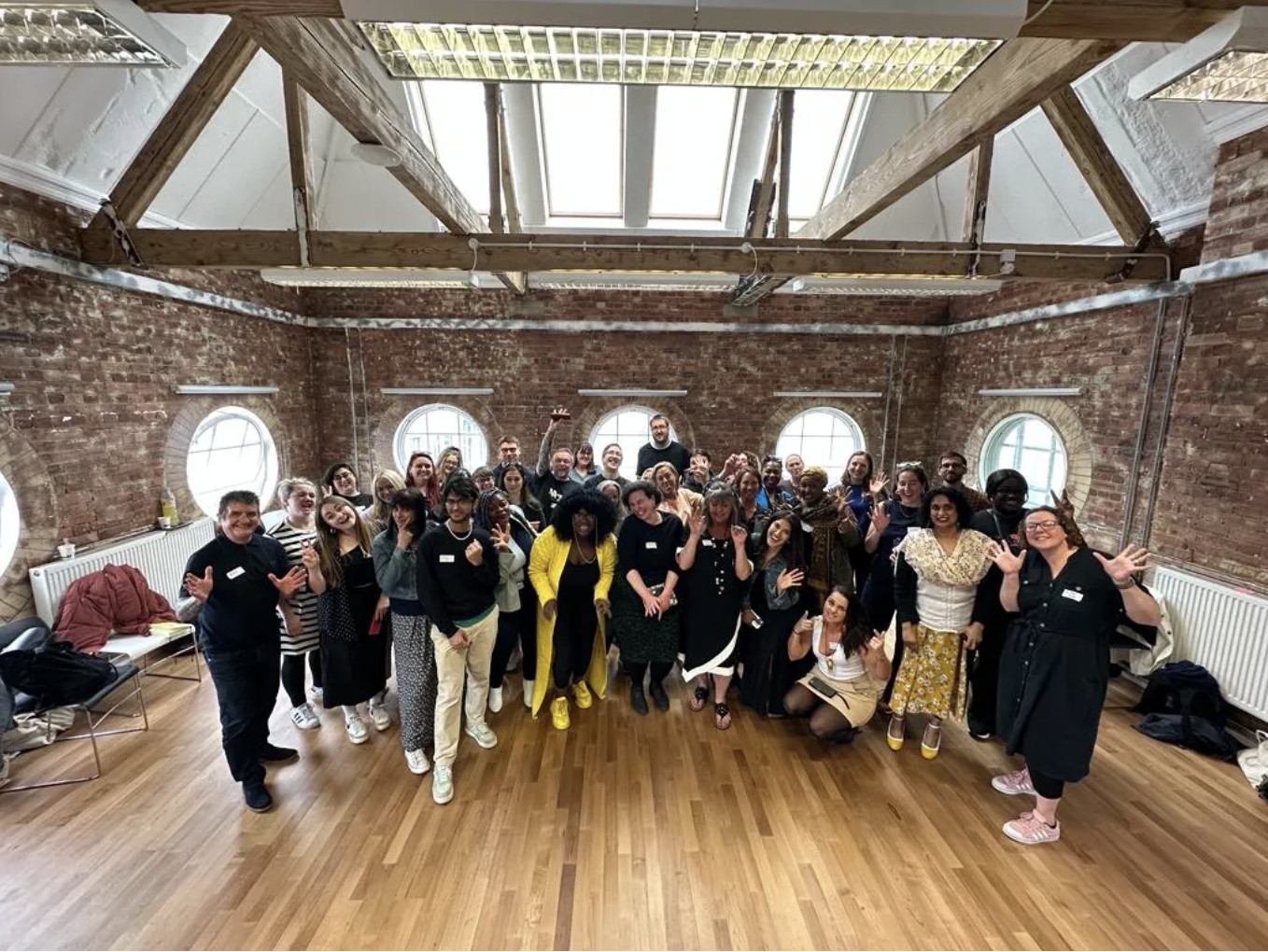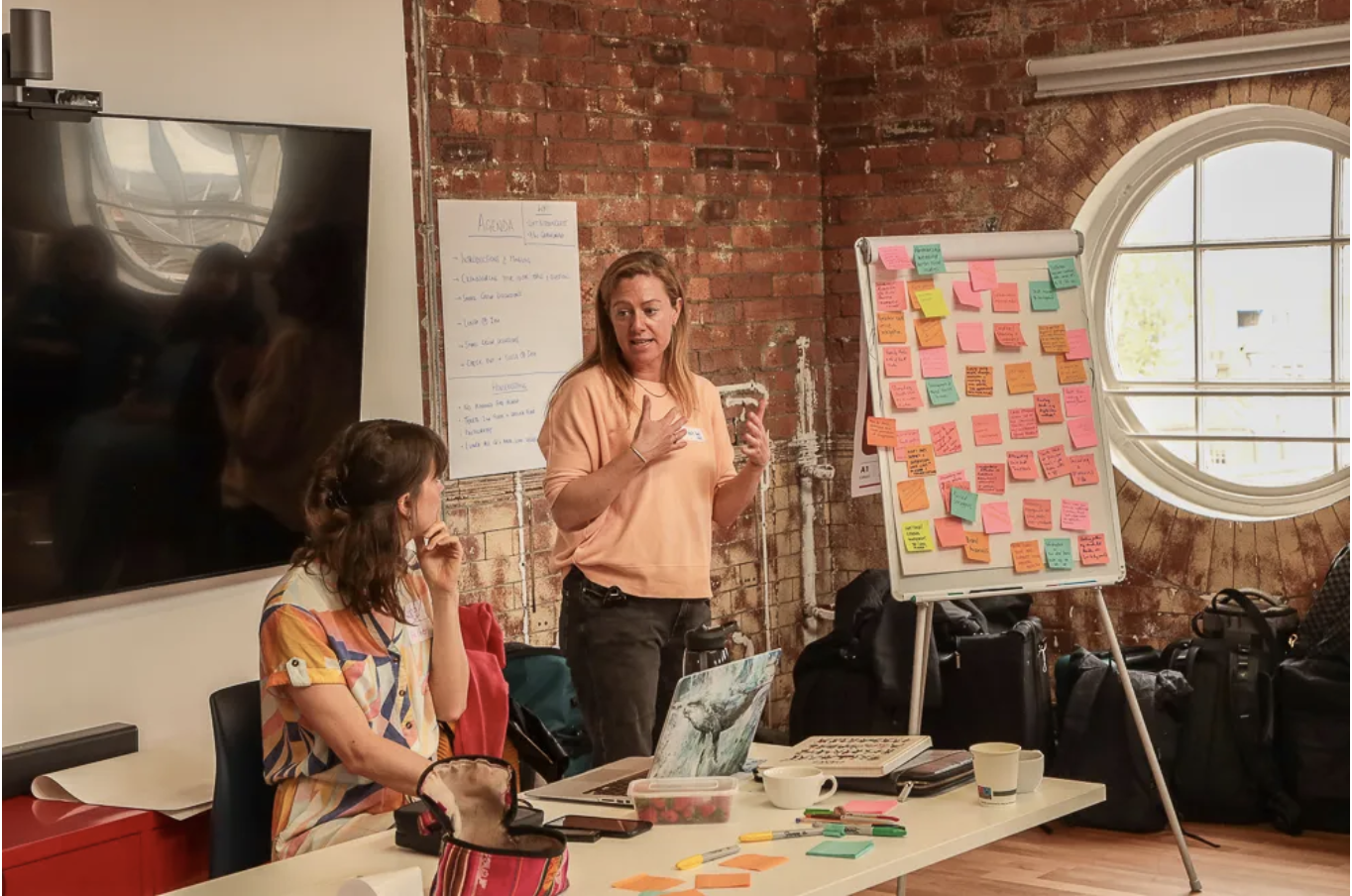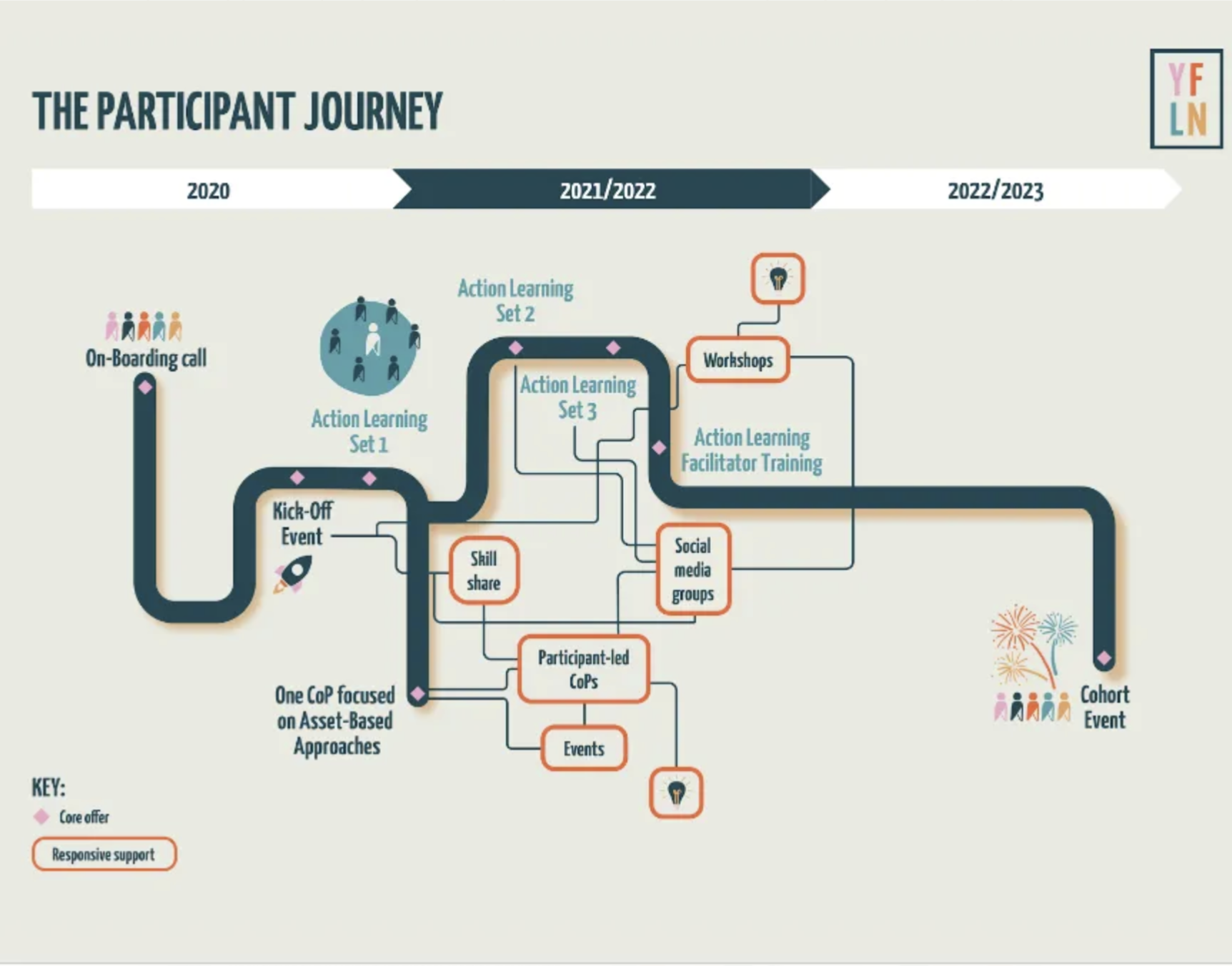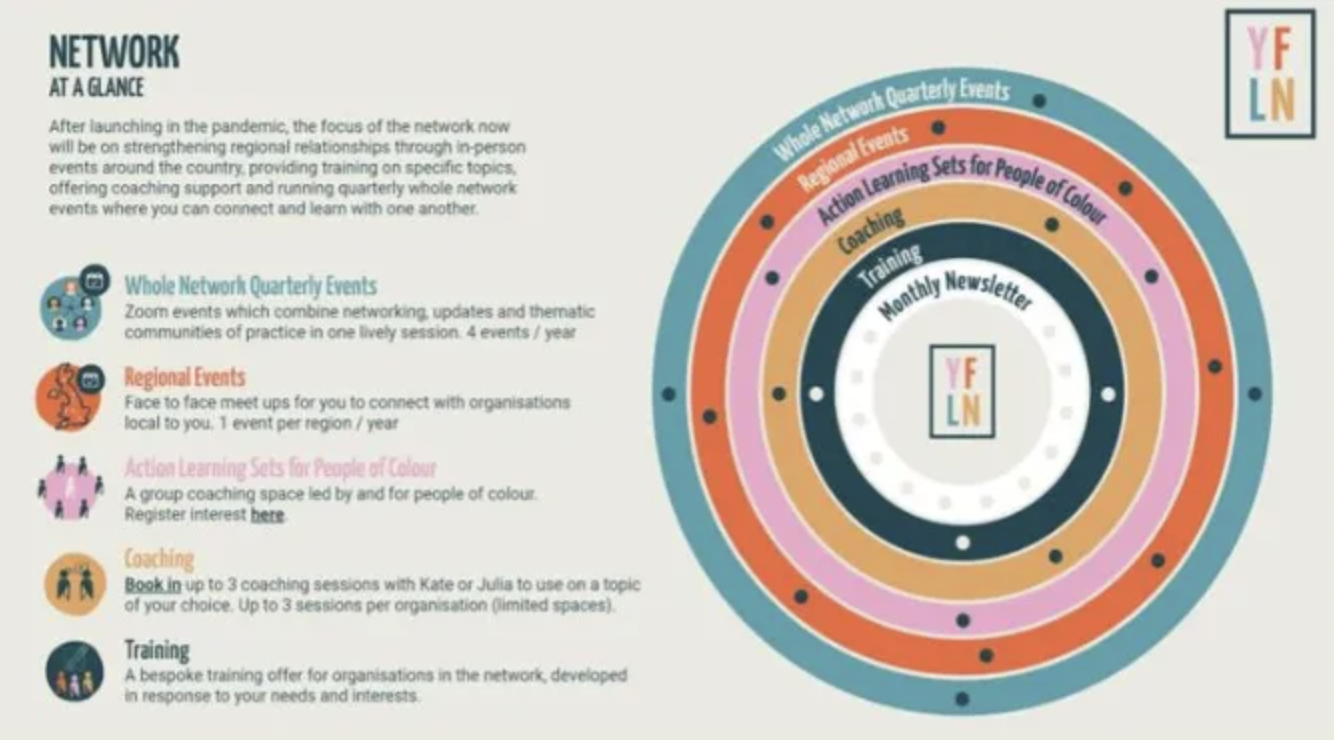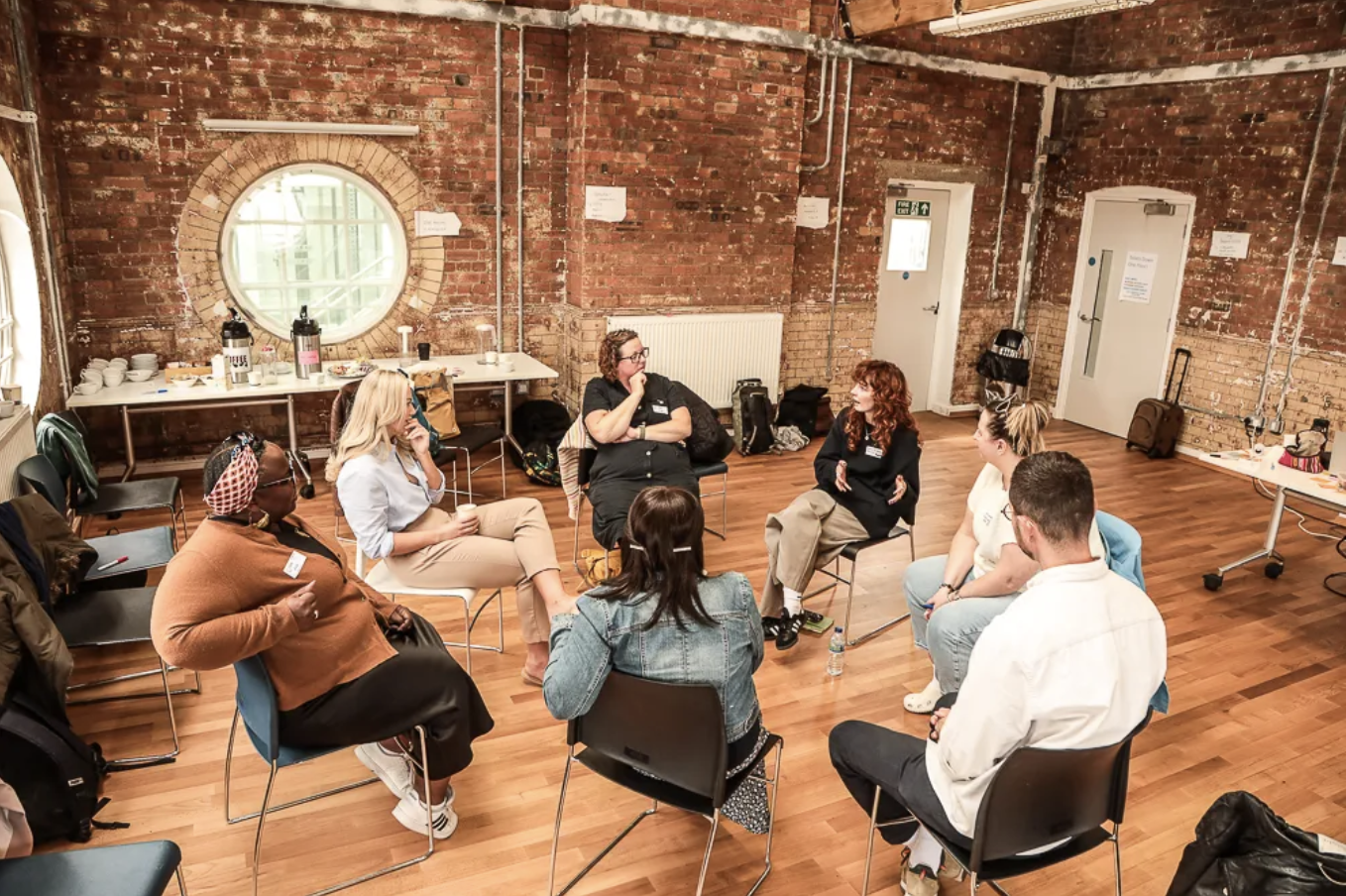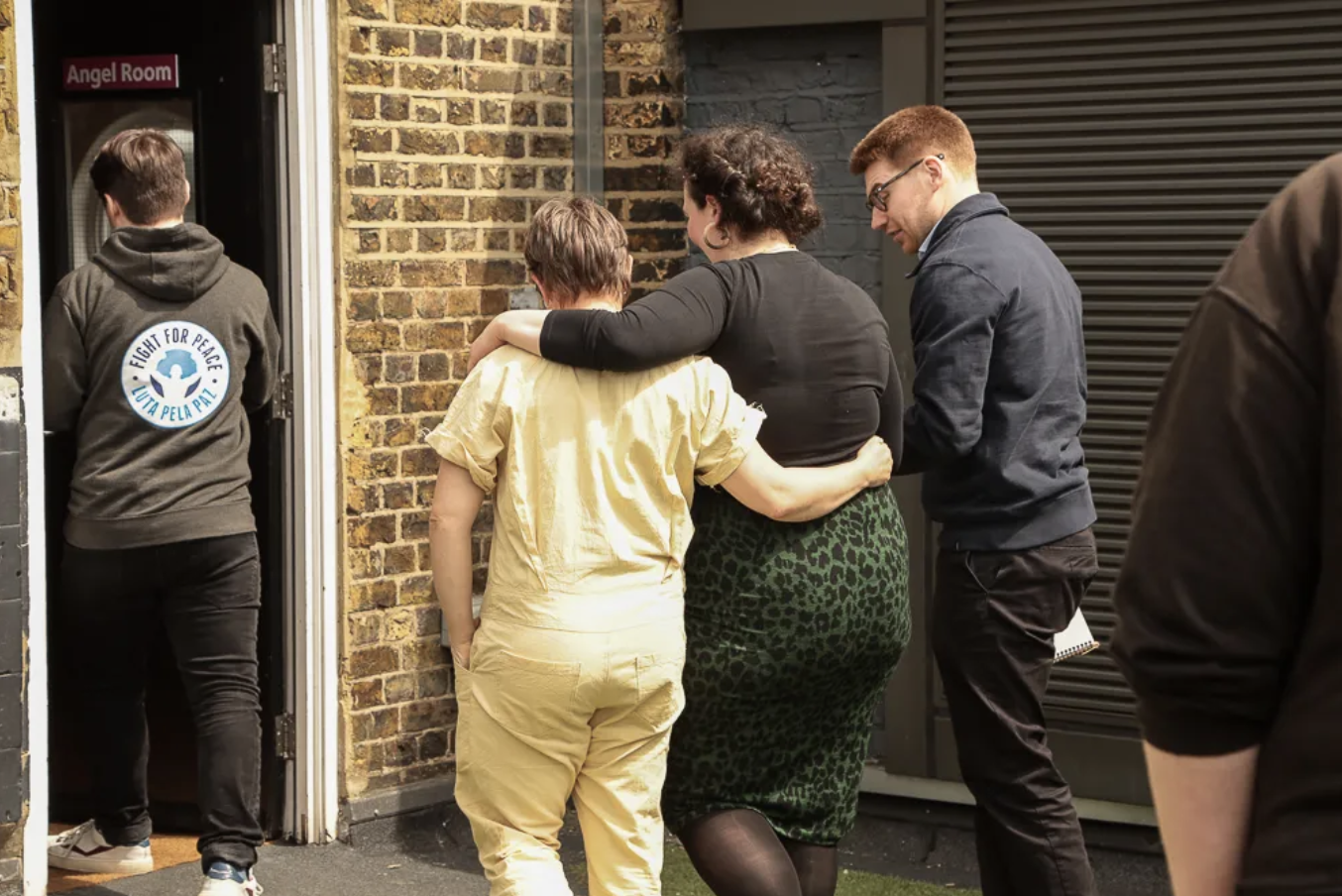3 years of running a peer learning network for 130+ youth organisations: what have we learnt?
A Paul Hamlyn Youth Fund Learning Network meet up
We are Kate Weiler and Julia Slay. We’re both facilitators and coaches who do work across the charity and public sector, and for the past 3 years we have co-run The Youth Funding Learning Network: a network for organisations funded by the Paul Hamlyn Foundation for their work with young people.
While much of what we share won’t be new, we hope there are valuable insights here for anyone convening networks or communities. Indeed much of what we have implemented has been inspired by our own experiences of being part of meaningful learning networks, such as the Huddlecraft community, the Freelancers Get Sh*t Done Slack Channel, the Clore fellowship and many more around the globe.
Kate and Julia facilitating an in-person YFLN meet up in May 2023
How did the network come about?
PHF wanted to commission this network to ensure a full package of support for grantees. They share:
“The Youth Fund always provided an opportunity for funded organisations to come together twice during their grant cycle. Through evaluation and reflection we realised that there was more appetite for opportunities to connect with others, provide and seek support and to learn in order to improve practice. It felt important that this wasn’t delivered by the funder, to create spaces separate to the grant to allow people and organisations to feel safe. The Youth Fund Learning Network was created at the beginning of 2020 and proved critically important as the pandemic impacted everyone’s ability to connect together. As a funder we know that sometimes it’s the learning and connecting with others doing similar work that has huge value — as well as the grant.”
The Youth Funding Learning Network: the story so far
We launched the network in October 2020. Organisations were deep in Covid, navigating virtual and hybrid delivery for young people. Our first phase of activities responded to this context, with specific focuses on mental health and wellbeing of staff and being a fully virtual offer.
At the start, we did a range of activities to help us get to know grantees and co-design the offer with them. This included on-boarding coaching calls to build relationships and gather information around current challenges, a kick-off event where we co-designed the network with members by crowdsourcing interest for communities of practice, and launching a slack channel for virtual and asynchronous communication (spoiler alert: this is one bit which didn’t take off).
We worked with a wonderful designer, Eliz Underhill, to help us build a brand and the visual of this user journey.
As the network continued, we took a real test-and-learn approach, regularly taking stock of what we were learning, reflecting on who was coming to what and what we were learning about the needs of the sector. This helped us see where and who we might be neglecting and helped us prioritise re-engagement. In this period, we also ran action learning sets, set up a range of community of practices, paired people up to a ‘peer-buddy’ and started offering 1:1 coaching, as well as launching an additional training and learning programme that we started to deliver alongside other core activities.
A visual of our updated offer
Now, in September 2023, we find ourselves delivering a grantee offer that includes:
Whole network events 4 times a year on Zoom which combine peer networking with a thematic deep dive (e.g. digital, inclusion)
Regional network events for in person networking: we have sought ‘hosts’ for these from within the network, which is a great way to see inside a network organisation at the same time.
Coaching on demand: each organisation in the network can book in up to 3 coaching slots with either Kate, Julia or Girda (they express their interest via a Google form).
A training and learning offer which includes a mix of experiential learning days (a deep dive into a topic, usually hosted by an expert organisation in the network, e.g. on trauma informed practice), bitesize training (often 1 hour peer to peer or external trainer led sessions, e.g. on corporate fundraising), and 1–2 day training days on topics such as line management training skills.
A monthly newsletter to all network members
We also have a Notion page, creating a one-stop shop for all resources, a network directory, and an easy place to book on to training events.
Our biggest learnings
Communities of practice (COPs) don’t have to look the same to be meaningful. The COP around collaboration and partnerships met once. The COP around mental health and wellbeing of staff met weekly for about 3 months. Some COPs never got off the ground at all. This helped us understand that connecting around a theme would be varied — it didn’t need to look like one distinct thing to be considered successful and meaningful for those attending.
Having facilitators to hold the ‘admin’ was essential for this to work. This was a high-admin project, from calendar invites, to connecting with people over email, to sending reminders about events and training. The fact that we held this responsibility, rather than participants, was key.
In a network, it’s easy to underestimate the power of 1:1 engagement, but taking time up front to have coaching calls with grantees was invaluable. The data from these calls directly informed the next phase of training and learning events.
There is huge appetite for 1:1 coaching. At the time of writing this, 45 grantees have actively sought out 1:1 coaching. 7 of these have opted to work specifically with a coach who is a person of colour (we work with a wonderful colleague, Girda, to provide this).
If you offer to pay for peoples’ travel and accommodation it makes it much more possible for people to attend. This has been HUGE! PHF have covered travel and accommodation costs for people to attend in person regional events and training and learning in person. This has been an absolute game-changer and has led to high attendance and sold out events.
A network like this can be an amazing temperature check of what is “live” in the sector, and is therefore a useful feedback loop to funders. PHF have attended some of our whole network events, and have always left with valuable insights.
What we tried that failed:
A Slack Channel: we really wanted Network members to have access to a channel they could use to connect with each other and communicate without us having to broker connections. We are both huge fans of Slack and use it daily, but this didn’t get traction beyond a small handful of network members. We also tried having an open Google Drive with folders containing the resources from Communities of Practice and an open spreadsheet with members’ contact details, both of which didn’t work and have been replaced with the much improved Notion page (though this does mean network connections still run through us as facilitators).
Mixed attendance at action learning sets: in the first six months we ran action learning sets for everyone in the network — with very mixed results. Some action learning sets had strong attendance, but the majority were more patchy. Off the back of that experience we tried a few alternatives, including drop-in reflective learning sessions. We also had strong interest for an action learning set specifically for People of Colour within the network, and worked closely with another facilitator to try and get something set up — but the initial interest didn’t translate into attendance. We’re now exploring what else we might offer in this space, or how we might collaborate with other organisations and initiatives.
One of our in person events, in London May 2023
And PHF have their own reflections too:
“We’ve heard so often how lonely working as a leader in the charity sector is, or how incredibly stretched resources are, how there isn’t time for learning and development. The YFLN goes a long way to addressing some of these challenges of people simply by connecting people together. We’ve learnt that it needs focused facilitation, it needs someone curating and supporting the network to connect, to contribute and to engage. Having a facilitator to welcome new joiners, to consider what topics to focus on, to share information, to support those who step forward to contribute and to highlight where there are shared challenges is incredibly useful. Since we’ve been able to bring people together in person again after the pandemic we have been reminded of the importance of this real life interaction — alongside providing continued opportunities to engage online and remotely.”
YFLN network members hanging out at an event
We’re really grateful to the team at PHF for being such a trusting, supportive and enabling funder. This has made a massive difference to us being able to be responsive and reactive to grantee needs.
We’re excited for the rest of this programme of events, and are cooking up more ideas that we hope will continue to provide support for grantees to connect with, learn from and support one another.
A big up to all those who have helped us along the way, from tech support, to design, to Notion 101 to admin to coaching; Gwenno Edwards, Eliz Underhill, Gemma Bending, Janinah McKenzie, Girda Niles, Jane Garnham.
